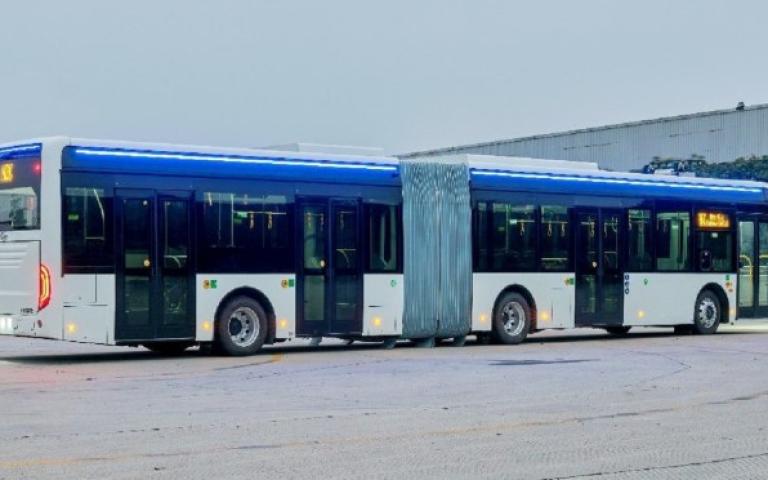The Chinese bus manufacturer Higer, belonging to the same group that manufactures the King Long and Golden Dragon brands, continues to show that it has great ambitions in the electrification of public transport in Latin America.
In November 2021, the official presentation of the Higer Azure 12BR electric standard was held in Brazil, in an event chaired by the Mayor of São Paulo. This 12.2 meter long vehicle capable of transporting up to 70 passengers is being demonstrated and tested on the routes of Transwolff, the public transport operator of the great Brazilian metropolis.
The next step will be the arrival of the Higer Azure 18BR articulated electric bus, the name by which it will be known in Brazil, since its name in China is KLQ6186GEV. The double-body version is essential for the development of BRT (Rapid Transit Bus – in Spanish) systems in Latin American cities, since in many cities, this type of bus is the majority. In Brazil alone, there are to date 94 lines of this type, in 24 cities, thus also the interest of the Chinese manufacturer and its representative in the country, TEVX.

The Azure 18BR is 18,750 mm long, 2,550 mm wide, and 3,390 mm wide; It is capable of supporting a gross vehicle weight of 33,500Kg, obviously influenced by the batteries. These accumulators are provided by CATL, with a capacity of 516Kwh, which allow an average autonomy of 270Km and to fully recharge, they need 3.5 hours.
Major brands in the automotive industry contribute to the development of this electric articulated bus: Dana with the generator, ZF with the air suspension, Wabco disc brakes, air conditioning manufactured by Valeo, Bosch power steering and special Michelin tires for urban use.
The Azure 18BR also stands out for its completely low-floor platform even at the rear doors, providing maximum accessibility, although it can be adapted for systems in other cities, whose stations are not at ground level. The bus will have all the equipment for the comfort of the 154 passengers it can carry, as specified by SP Trans, manager of public transport in São Paulo: air conditioning, USB charging ports, free Wi-Fi internet connection and tinted windows.
The model is integral, with chassis and bodywork built in China, which continues to generate controversy in a country like Brazil, where importers are tightly controlled and where its population travels in 100% local buses. The bus that will arrive in July will not be alone, as a second Azure 18BR will be tested on urban routes in Uruguay.

